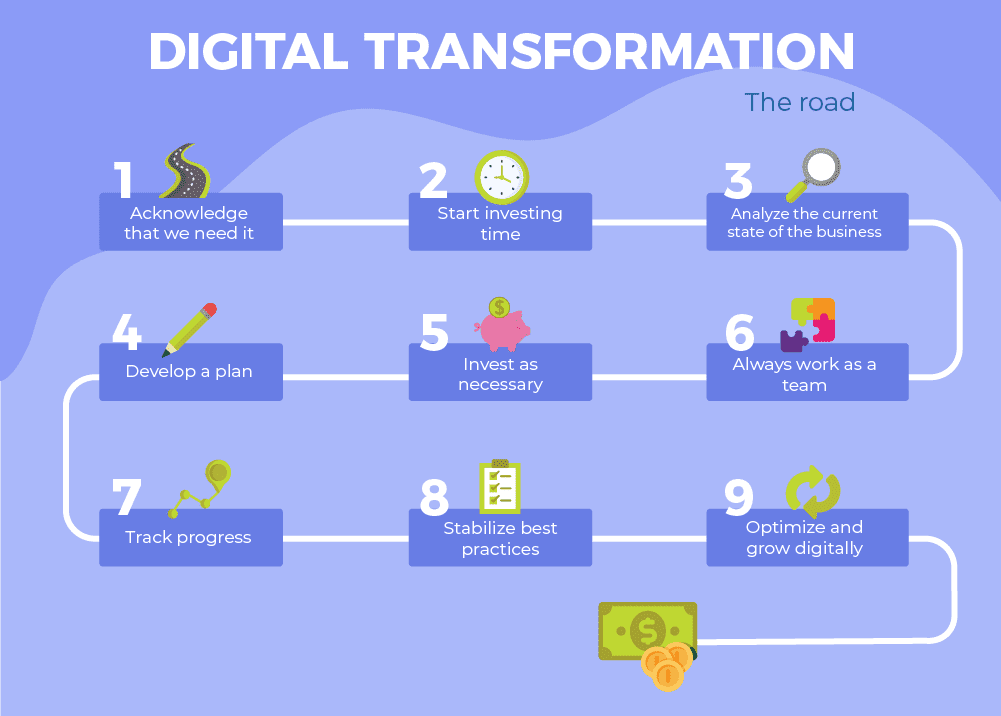Marketing intelligence helps organizations create a mindset around the optimization and mining of Digital Marketing data, which is vital when companies embark on their digital transformation. Becoming digital means adapting to break down processes solidified over time, build strategic pillars, and collaborative mindset.
Building a DNA that is based on strategic pillars will serve as the basis for developing a data mining approach. Instead of each area choosing what data to share, marketing intelligence builds a data-driven workbench where the ideas, metrics, and needs of all those involved can converge.

In turn, in order to provide an overview of digital marketing results to the client, it is also vital to set a measurement plan that encompasses the entire ecosystem of digital assets and understands how they connect with the offline world. In this way, it is possible to identify trends in KPIs (Key Performance Indicators) and drive business growth based on the data collected. This requires collaboration between key players in departments such as IT, business intelligence, sales, marketing, systems, and information security, among others, who will help form a strategic vision for the digital transformation.
A survey in which 683 marketing leaders from all over the world participated revealed that 85% of them agree that a high level of data analytics and insight generation are important for someone working in marketing today.
Establish pillars to measure progress
When adopting a Data-Driven Strategy to measure a digital transformation process, it is key to show the impact of such transformation on indicators in order to be able to evaluate progress, identify issues that can be improved, and make the necessary adjustments.
In co-creation meetings, business, behavior, and performance indicators segmented by pillars should be analyzed with each area involved, and these may vary depending on the specific needs of each sector/business. Pillars are defined based on an organization’s business goals in the face of a digital transformatio and are used as a pivot for setting objectives and aligning the strategic side with the operational side. Also indicators, segmented by pillars, make it possible to measure success, improve user behavior or experience by means of different initiatives, and determine the impact of the digital transformation.
Sources of data: Building bonds of trust
One of the most common pain points in the development of a digital transformation program is the unification and identification of the data sources of each of the digital assets. These are essential to be able to measure the performance of each of the areas within the organization, as well as its products and/or services.
Let’s keep in mind that one of the advantages of these programs is introducing real-time tracking tools for performance, behavior, and business measurement. For companies whose teams are organized in silos, the information that is handled by each area is thoroughly divided and its access is restricted. It is extremely difficult to have a 360° view in this kind of organizations because each area delivers its own reports to the managers without considering other variables that fall outside the scope of their particular silo vision.
In this sense, implementing marketing intelligence within a siloed company entails not only organizational but also cultural changes. By concentrating data in a single place,either in a dashboard or specific data lakes, teams must provide confidence to the leaders of each silo about their capabilities and generate work ties to ensure the flow of data. In turn, the silos begin to see the added value of presenting data in an integrated way, and the simplicity with which the information is obtained, if we compare it to manual reports. Therefore, marketing intelligence would become a link between areas since it is not part of any one area but consolidates the efforts of all of them.
Marketing Intelligence is a practice focused on leveraging and interpreting data to detect relevant marketing opportunities and trends, with the purpose of driving the clients’ business objectives. Since data management is key to making business decisions, we use data management and customized reports to provide critical information needed to optimize strategic marketing efforts.
Metrics are sometimes more important than the effort made, since the data must be considered as raw material to create hypotheses that can be used to optimize services. Hypotheses make it possible to achieve a better understanding and thus make the best decisions for the business. Today, information by itself is not power. Instead, its interpretation in a logical and real context is what leads to relevant and actionable insights.
As 2020 showed us the need for digitalization, marketing intelligence has become crucial to navigate this new and complex digital landscape. Industries from retail to banking can leverage the power of optimizing digital marketing data. Read the second part of this blog to find out how financial organizations are implementing marketing intelligence on their digital transformation roadmaps.





